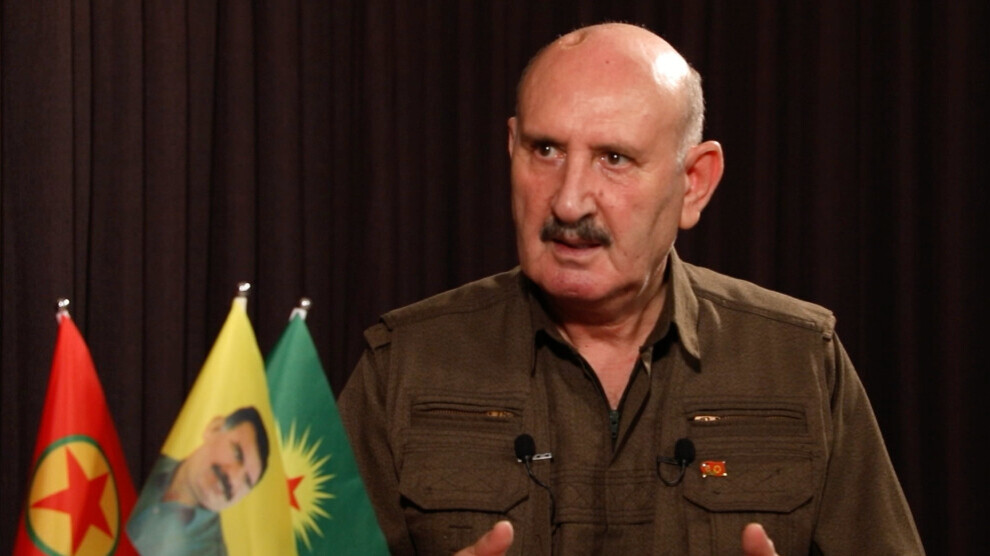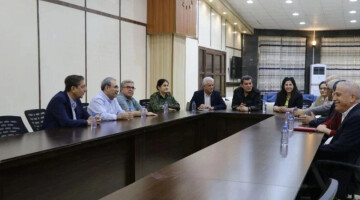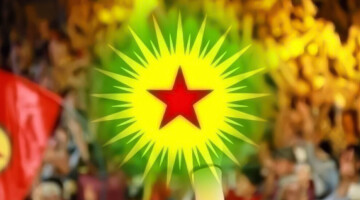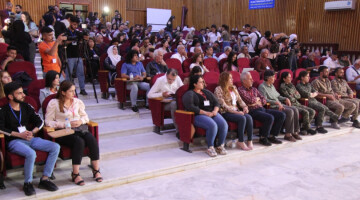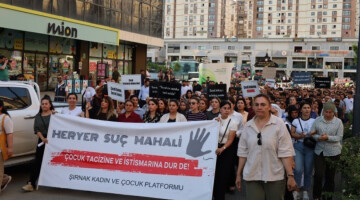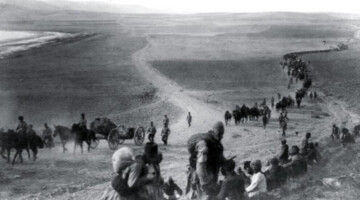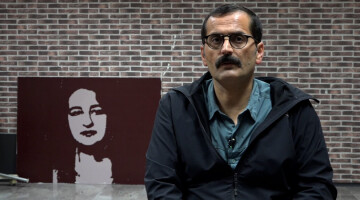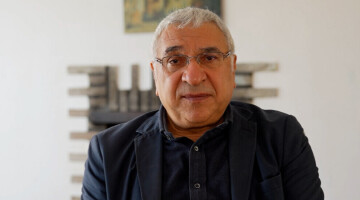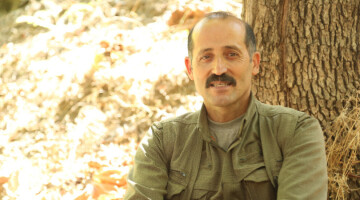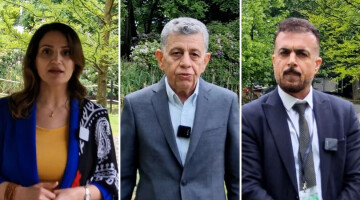Sabri Ok, member of the KCK Executive Council,
There has been no news from the Kurdish people’s leader Abdullah Öcalan for 39 months now. No information has been disclosed as to the situation in Imrali.The Kurdish people continue their protests for the physical freedom of Rêber Apo. How do you evaluate both the resistance and struggle in Imrali and the actions of the Kurdish people and their international friends?
Our primary focus is on the situation of Rêber Apo [Abdullah Öcalan]. Not only the movement and our leadership, but also our people and international friends, should make Rêber Apo’s situation their main agenda, empathize, discuss what is right, what is one’s duty and responsibility, and what can be done. This is a moral, political, and humanitarian duty. Rêber Apo says that whatever happens to him, whether the matter is life or death, the underlying cause is political. For 26 years, Rêber Apo has been a hostage in Imrali, and for 39 months, he has not been heard from in any way, while the Turkish state is watching him 24 hours a day with cameras. Rêber Apo has a historical and heavy burden on his back. We can only imagine how much pressure he is under. There is a great deal of pressure and resistance in Imrali. The real war is taking place there. The Turkish state considers Imrali an area of liquidation. The Turkish state, Erdoğan and Bahceli, are waging a genocidal war against the Kurdish people. If conditions were at least close to normal in Imrali, if Rêber Apo could live a normal life and the Turkish state respected and accepted his role as a leader, the situation would be very different and would have a positive impact on Turkey. This fact is neither untrue nor exaggerated.
The heart and pulse of Turkish society and the Kurdish people beat in Imrali. No one can claim otherwise. Therefore, Turkey’s future, democratization, and the liberation of the Kurdish people are completely interwoven with the physical freedom of Rêber Apo. Everyone is responsible for ensuring Rêber Apo’s physical freedom. First and foremost, our people and we as a movement, but also all revolutionary forces and everyone who has human values, are responsible. That is why the campaign launched eight months ago for Rêber Apo’s physical freedom and for the democratic solution to the Kurdish question has received support all over the world. This is of great significance. The campaign is still going on, and so academics, revolutionary forces, and young people are reading and discussing the prison writings in order to understand Rêber Apo’s paradigm. This paradigm, which was written against capitalist modernity, is a breath of fresh air for humanity. There is no doubt that the campaign has reached a certain level, but we should never be comfortable or satisfied. The campaign must continue with a new synergy every day, and everyone must see themselves as responsible for this. Every Kurd and everyone with human values should ask themselves what they have done for this campaign. Until the physical freedom of Rêber Apo is achieved, no one should say, “We have done a lot, we have succeeded, and now we can relax.”
As I pointed out, one of our main goals is the physical freedom of Rêber Apo. The ongoing isolation is inhumane. Normally, the family and lawyers should be able to visit him. So, we are struggling for him to be able to exercise this right, but still, our main goal is the physical freedom of Rêber Apo. Of course, there is a struggle for this, but it should be wider and stronger. Just as people all over the world embraced Mandela, we must embrace Rêber Apo in the same way. Not only the Kurdish people but also our international friends have started the campaign; this is also very important. The democratic forces, our international friends, socialist forces, and women and youth movements should convey this campaign to their societies. This campaign must be carried out with the participation of the whole society, not just some friends. There are discussions and plans on this issue. Rojava is also standing up for this campaign, which is very good. We respect the work being done in northern Kurdistan and Turkey. There is a struggle going on, but it is not enough. Especially in northern Kurdistan, the democratic and socialist forces, as well as the Kurdish institutions, should come to terms with the reality that there are things that are legal and there are things that are moral. It is necessary to take action accordingly. We see the struggle for Rêber Apo’s physical freedom in northern Kurdistan and Turkey as incomplete.
Society should not be complacent; it should empathize. Rêber Apo pulled the Kurdish people out of the grave where they were buried alive. The Kurdish people have reached such a strong stage of struggle, will, and accomplishment through Rêber Apo. The Kurdish society, its international friends, and the forces of freedom and democracy must point the finger at the ongoing injustice. It is wanted to destroy the future of society by destroying the person of Rêber Apo. Accordingly, there should be a more massive, bigger struggle than ever before. This is a humanitarian criterion. As I said, there are some efforts at a certain level, but the pressure and torture continue in Imrali. Therefore, society must rise up in every field and further spread its struggle. Also, the legal struggle must be expanded. Thousands of lawyers in Turkey have put the issue on the agenda. This is very important. The lies of the Turkish state and the true face of Erdoğan must be exposed to the whole of society.
June 29th is the anniversary of the execution of Sheikh Sait, and June 30th is the anniversary of comrade Zilan’s sacrifice. What is your message regarding these two anniversaries?
I respectfully commemorate comrades Zilan, Sema and Gulan and all our martyrs. I also respectfully commemorate Sheikh Sait, who has a place in the hearts and history of the Kurdish people. We are their followers. How did the PKK emerge? For example, without Mazlum, Kemal, Hayri, Ferhat and their prison resistance, there would not have been a PKK with such a culture. What would the PKK have been like without Egid, without the dozens of friends who set their bodies on fire against the international conspiracy, without Zîlan, who gave the biggest sacrifices? All of them created this culture. They are the history and reality of the PKK. Our duty is to follow these comrades and protect their values. Therefore, once again, I commemorate all our martyrs and bow to their memories with respect. Our movement, our people, the PKK, and the KCK, draw its strength from this. Despite everything, the struggle continues, and we are convinced that we will succeed.
They executed Sheikh Sait and Seyit Riza, and today no one knows where their graves are. This is, of course, a policy of the Turkish state. It wants to destroy the historical memory of the Kurdish people and make them forget. The PKK has thousands of martyrs today, of whom the location of their graves is unclear. A few days ago, thousands of people visited martyrs’ cemeteries in northern and southern Kurdistan, as well as in Rojava. When Sheikh Sait was executed, there were no such opportunities. They executed him, and now no one knows where his grave is. Here, too, the PKK gave an answer to history. Sheikh Sait was not executed just because he appeared as a religious person. He was a conscious person; he spoke five different languages. Sheikh Sait’s son Ali Riza once said, 'My father had national consciousness.' All our efforts are to realize their unfinished dreams. As Rêber Apo once put it, 'I will complete their unfinished dreams, I will succeed.' With this responsibility, with this love and excitement, we will always try to play our role. We will try to be worthy of the values of the Kurdish people and their martyrs.

